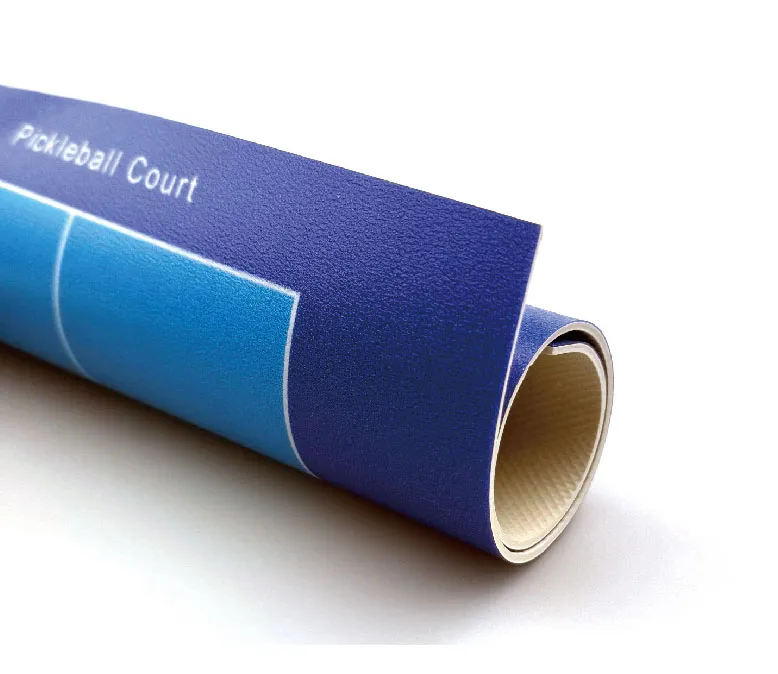ಡಿಸೆ . 27, 2024 01:39 Back to list
Choosing the Best Flooring Options for Commercial Garage Spaces and Workshops
Choosing the Right Flooring for Your Commercial Garage A Comprehensive Guide
When it comes to commercial garages, the flooring plays a critical role in the functionality, safety, and overall aesthetics of the space. Whether it’s an automotive repair shop, a warehouse, or a simple parking structure, the right flooring can enhance your operations and provide lasting durability. Below, we delve into the various options available for commercial garage flooring, weighing their pros and cons to help you make an informed decision.
1. Concrete Flooring The Classic Choice
Concrete is the most common material used for commercial garage floors. Its durability and strength make it ideal for high-traffic areas, while its low maintenance requirements are a significant advantage.
*Pros* - Durability Concrete can withstand heavy loads, making it perfect for garages with heavy machinery or vehicles. - Low Maintenance Sweeping and occasional sealing are often all that’s needed to keep concrete in good shape. - Cost-Effectiveness Generally, concrete flooring is one of the more affordable options, especially for large areas.
*Cons* - Cold and Hard Concrete can be unforgiving, particularly in colder climates where temperatures can drop significantly. - Stains and Cracks Without proper sealing, it can absorb oil and other stains, leading to a worn-out appearance.
2. Epoxy Flooring A Protective Layer
Epoxy flooring involves applying a resin over concrete, creating a strong, waterproof surface. This type of flooring is particularly popular in commercial garages due to its robust nature and decorative options.
*Pros* - Durability Epoxy can withstand impacts, heavy loads, and chemical spills, making it ideal for garages that handle a variety of substances. - Easy to Clean The smooth surface resists stains and is easy to maintain, requiring just a mop and water for regular cleaning. - Aesthetic Appeal Epoxy comes in numerous colors and finishes, allowing businesses to create a customized look.
*Cons* - Application Process Applying epoxy requires a multi-step process and typically needs professional installation to ensure longevity. - Temperature Sensitivity Installation must be done in controlled conditions; otherwise, it may lead to peeling or cracking as temperatures fluctuate.
commercial garage flooring

3. Interlocking Tiles Versatile and Functional
Interlocking tiles are a modern and flexible option for commercial garage flooring. Made from rubber, vinyl, or plastic, these tiles can be laid down without adhesives and can be easily replaced if damaged.
*Pros* - Ease of Installation Because they can be laid down simply by snapping together, interlocking tiles can save time and labor costs. - Comfort and Safety Rubber tiles, in particular, provide cushioning underfoot and are slip-resistant, which can enhance safety in the workplace. - Variety of Designs Tiles come in various colors and patterns, allowing for unique designs that can enhance the overall feel of the garage.
*Cons* - Durability While interlocking tiles are made from durable materials, they may not support extremely heavy loads as well as concrete or epoxy. - Cost High-quality tiles can be more expensive upfront than traditional concrete.
4. Vinyl Flooring A Brand New Option
Vinyl flooring has emerged as an economical and stylish choice for commercial garages. It is typically used in environments that require a softer surface yet still need resilience against wear and tear.
*Pros* - Variety of Styles From tiles to sheets, vinyl can mimic the appearance of stone or wood, making it a versatile choice for appearance-conscious businesses. - Water and Stain Resistance Vinyl is inherently resistant to water, making your garage easier to maintain.
*Cons* - Heavy Loads While vinyl can withstand some weight, it may not be suitable for garages expecting heavy machinery or vehicles over time. - Temperature Sensitivity Extreme temperature fluctuations can impact vinyl’s performance and longevity.
Conclusion
Selecting the right commercial garage flooring is crucial for ensuring safety, durability, and aesthetic resonance with your business’s brand. Each flooring option comes with its unique advantages and disadvantages, and understanding these can help you choose the most suited one for your operational needs. By weighing these factors carefully, you can create a functional, safe, and visually appealing space that enhances your operations and reduces maintenance costs in the long run.
-
Professional Tennis Court Lining Services Pickleball Court Marking Experts
NewsJun.24,2025
-
Pickleball Court for Sale - Premium Flooring Solutions for Sports Venues
NewsJun.10,2025
-
Maple Grove Outdoor Pickleball Courts - Premium Conversion & Durable Materials
NewsJun.10,2025
-
Best Pickleball Outdoor Courts Solutions Convert Tennis Courts, Outdoor Covered Courts, Maple Grove Options
NewsJun.10,2025
-
Convert Tennis Court to Pickleball Fast & Affordable
NewsJun.09,2025
-
Indoor Outdoor Pickleballs Durable & All-Weather for Any Court Play
NewsJun.09,2025

